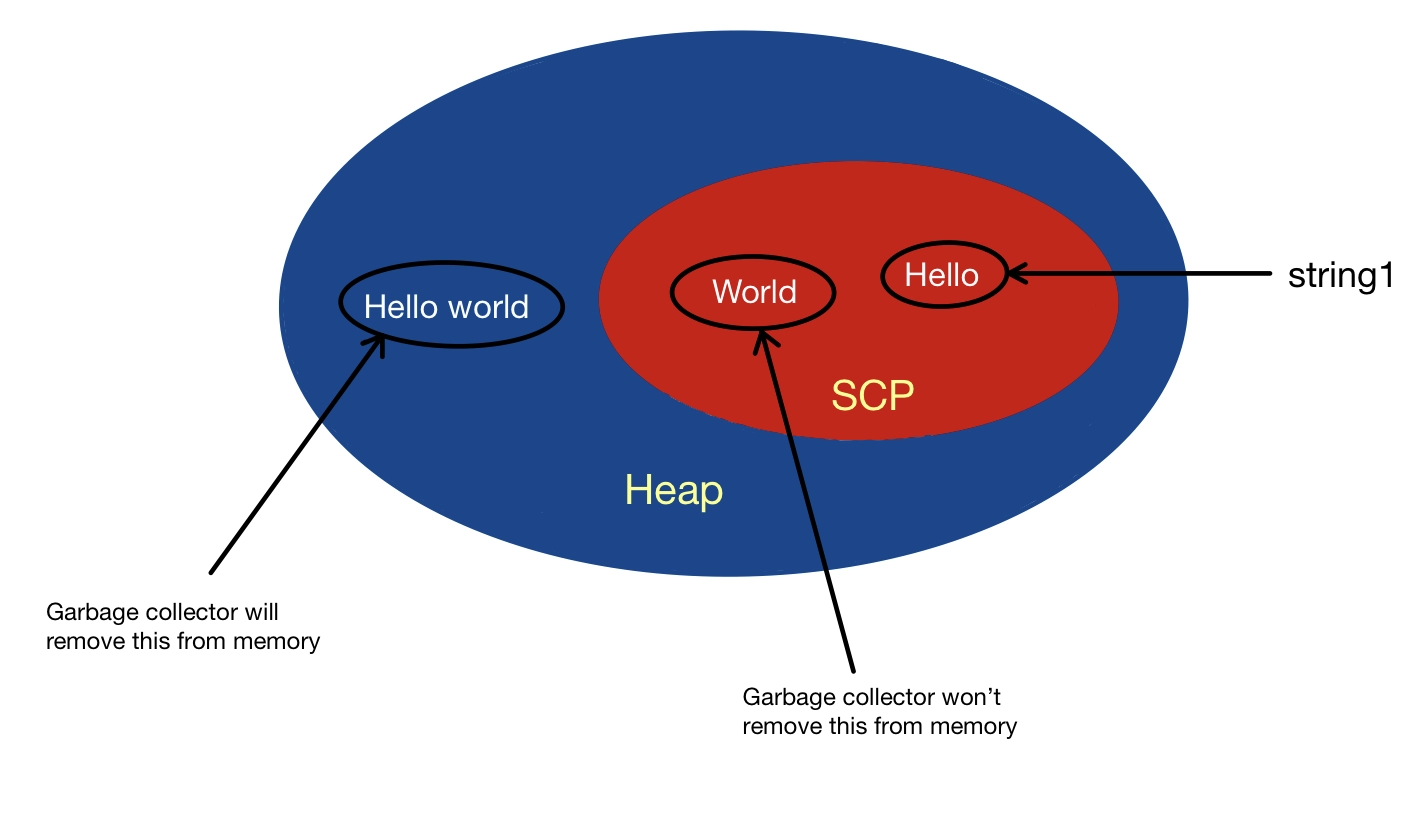Why Are Strings Immutable in Java? Insights right into Memory Performance
Why Are Strings Immutable in Java? Insights right into Memory Performance
Blog Article
What Is Unalterable Strings and Exactly How It Works
In the realm of shows, understanding the principle of unalterable strings is critical for creating durable and safe and secure applications. Unalterable strings refer to strings that can not be altered after they are produced, making certain information stability and predictability within the code. This essential concept plays an important role in different shows languages and supplies an unique approach to dealing with data. By exploring the intricacies of just how immutable strings work, one can uncover a world of benefits and possibilities that can elevate the quality and performance of software growth.
The Essentials of Immutable Strings
Immutable strings, as a basic principle in programs, are personality sequences that can not be transformed when they are produced. This means that once a string is appointed a value, that worth can not be changed. In languages like Python and Java, strings are immutable objects, bring about different implications in terms of memory administration and information stability.
Among the vital advantages of immutable strings is that they give a feeling of safety in information manipulation. Considering that the content of an unalterable string can not be customized, it guarantees that the original data stays undamaged, lowering the threat of unplanned modifications throughout program implementation (Why are strings immutable in Java?). This property likewise streamlines debugging procedures, as developers can rely on that as soon as a string is defined, its value will certainly not be unintentionally modified
When a new string is produced based on an existing one, rather than customizing the original string, the brand-new value is kept individually. Generally, comprehending the fundamentals of unalterable strings is essential for mastering programs ideas and enhancing code performance.
Benefits of Immutable Strings
Building upon the safety and effectiveness benefits of unalterable strings, their benefits expand to enhancing code reliability and simplifying concurrent programs jobs. By being unalterable, strings can not be customized after development, which gets rid of the danger of unintended changes in the information they save. This fundamental immutability guarantees that as soon as a string is developed, its worth continues to be constant throughout the program's implementation, decreasing the chances of pests caused by unexpected modifications.
Additionally, unalterable strings add to code dependability by making it much easier to reason regarding the state of a program. Given that strings can not be changed, developers can trust that a string will certainly always hold the same value, simplifying debugging and maintenance initiatives. This predictability leads to more reputable and steady codebases.

Execution in Shows Languages
Within different shows languages, the unification of immutable strings is a basic go to website facet that impacts just how data is taken care of and manipulated within code frameworks. The implementation of unalterable strings differs across different shows languages, with each language supplying its own mechanisms to sustain this idea.

On the other hand, languages like C and C++ do not have integrated support for immutable strings. Developers in these languages have to manually apply immutability by implementing guidelines within their code to stop straight modifications to string things.
Finest Practices for Functioning With Immutable Strings
When handling immutable click to read more strings in programs languages like Java and Python, sticking to ideal practices guarantees reliable and protected information adjustment. One of the essential ideal practices is to use StringBuilder or StringBuffer rather than directly adjusting strings, particularly when taking care of considerable concatenation procedures. These courses give mutable options for string manipulation, helping to prevent unneeded memory allocations and boosting performance.
Additionally, when functioning with sensitive data such as passwords or API secrets, it is essential to stay clear of keeping them as plain text in unalterable strings. Using protected storage mechanisms like char varieties or specialized collections for managing delicate info assists reduce security risks connected with unalterable strings.
Real-world Applications and Examples
Discovering practical applications of immutable strings in different industries discloses their considerable influence on data honesty and system integrity. In the healthcare field, unalterable strings play an essential role in making certain the safety and discretion of person information. By protecting against unauthorized adjustments to sensitive info such as medical records and prescriptions, unalterable strings assist keep compliance with stringent personal privacy policies like HIPAA.
Economic institutions additionally benefit from the immutable nature of strings to enhance the protection of customer data and transaction documents. Immutable strings aid avoid scams and unapproved changes to monetary details, offering a durable defense versus cyber risks and ensuring the depend on and confidence of clients.

Conclusion
Best practices for working with immutable strings include avoiding direct alterations and using methods that return brand-new string objects. Real-world applications of immutable strings include information security, caching, and string control jobs.
Unalterable strings refer to strings official source that can not be altered after they are produced, making certain information stability and predictability within the code. When a brand-new string is developed based on an existing one, rather than modifying the initial string, the new worth is stored independently.In languages like Java and Python, strings are unalterable by default, indicating that as soon as a string item is developed, its worth can not be transformed - Why are strings immutable in Java?. Ideal practices for working with unalterable strings consist of staying clear of straight modifications and utilizing approaches that return brand-new string things. Real-world applications of immutable strings include information encryption, caching, and string manipulation tasks
Report this page